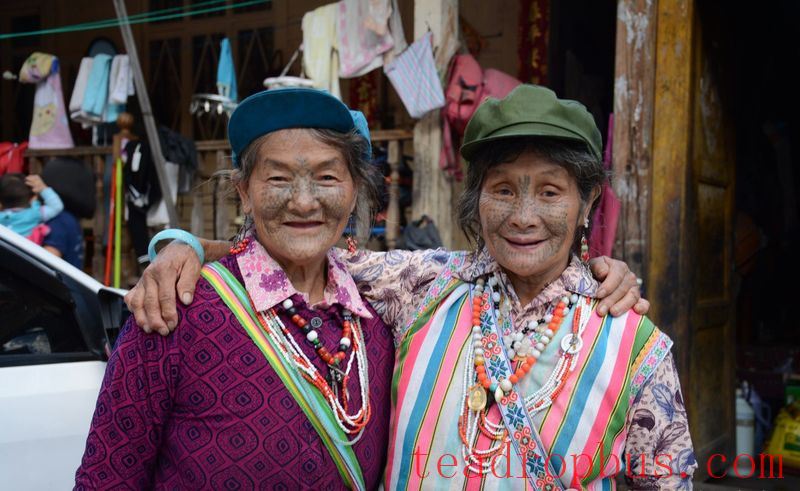
In the morning, mist rises over Bingzhongluo. Houses are scattered across the fields, with wisps of smoke rising from them, and the turbulent river rushes on for miles. When the sun shines on Mount Gongtang, Feng Shaozhen is already heating water and slaughtering a chicken to prepare “Xila,” a special dish they use to entertain esteemed guests. During the days leading up to the Spring Festival, there are many celebrations in the village, and “Xila” is always present on the dinner table.
The firewood in the hearth burns fiercely, and steam continuously rises from the kettle placed on the tripod. Feng Shaozhen brings out a small pot, adds butter and lacquer oil, and begins to stir-fry.
“Our family was very poor before, we couldn't afford much alcohol. At the age of 17, when I helped someone with work, I had Xila for the first time. I still can't forget that taste.” While saying this, she pours the chopped chicken into the oiled pan.
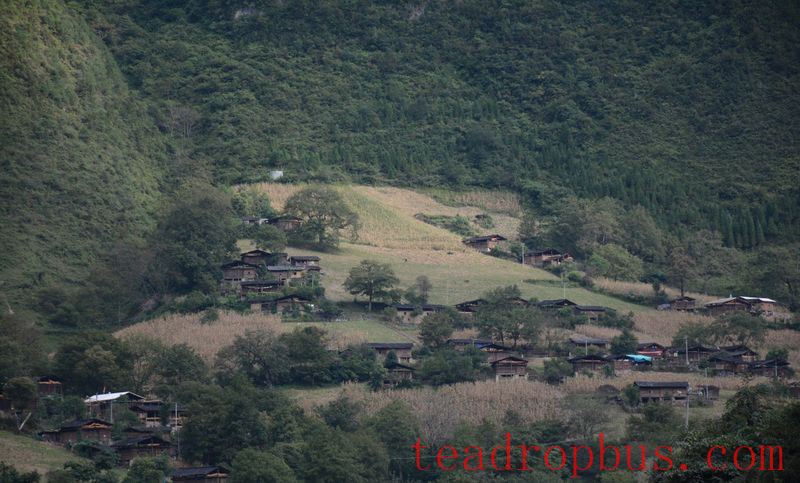
Talking about her memories of Bingzhongluo, Feng Shaozhen smiles and says: “In the past, there was only a small path out of Bingzhongluo. It would take a whole day to go to Gongshan County to fetch salt and rice. The roads are much better now! The road to Tibet has also been built, and villages like Wuli and Qinanutong along the Bingchacha route are very beautiful.”
In Feng Shaozhen's home, there is an interesting phenomenon: her husband and children are Catholic, while she practices Tibetan Buddhism. This situation is quite common in Bingzhongluo, which is a place where multiple ethnic cultures and religions coexist, and where “Eastern and Western religions intermingle and influence each other.” Here, besides Tibetans, Nu people, and Lisu people, there are also Dulong, Han, Bai, and Naxi residents. In Bingzhongluo, different religions complement each other and coexist peacefully. Many families have members who practice different religions without interfering with each other, living in harmony.
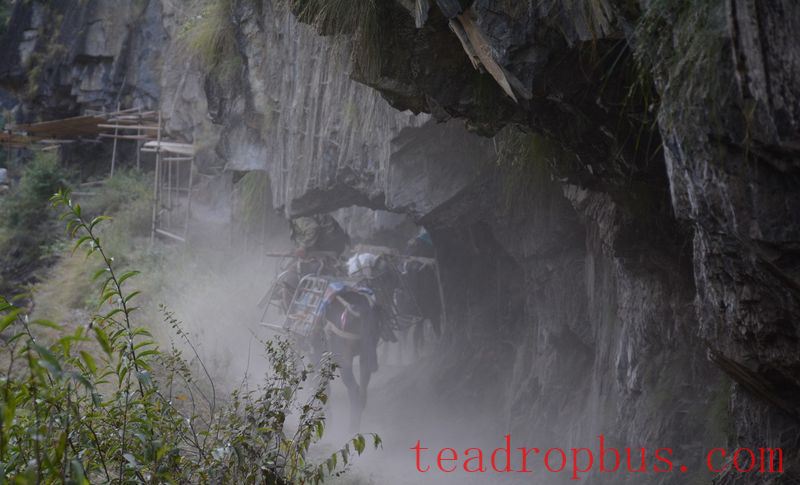
After drinking this bowl of “Xila,” we continue our journey, exploring the human stories of the Nu River area.
Bingzhongluo is surrounded by many sacred mountains. The people of Bingzhongluo, raised among these mountains, have a temperament as broad and strong as the mountains themselves, and their disposition is as unrestrained as the Nu River. The scenery and the waters have nurtured their simple and bright inner worlds.
Leaving Puhua Temple, we move forward. Due to road construction, we must take a small path. As it happens to be autumn harvest season, we stop at a village beneath Mount Gongtang. The scent of rice fills the air. Diligent farmers are swinging their sickles, cutting down the rice. Aunt Yang tells me that she started working in the field early in the morning and is just about to head back home after harvesting the rice. Seeing that I don't have any food or water, she offers me some water from her basket. Such kindness from a stranger warms my heart.
Passing through Wuli Village and walking about two kilometers along the ancient Tea Horse Road, we reach a small group within Qinanutong. The village is backed by the Biluo Snow Mountain, and its houses face the turbulent Nu River. The houses are scattered along the creek banks and are made of wood, with earth walls forming two levels. People live upstairs while livestock are kept downstairs, and the roofs are covered with stone slabs. Fruit trees such as pear and peach trees grow in the fields. It is said that in spring, Wuli Village looks like a painting, beautiful like a paradise beyond the world.
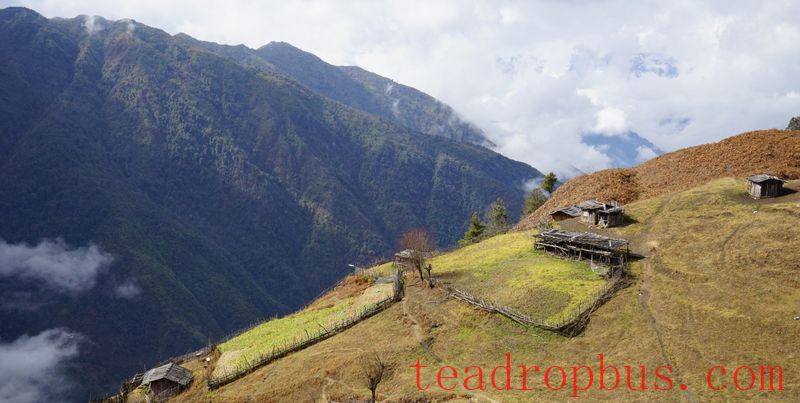
The only means of transportation connecting Wuli Village to the outside world used to be the century-old Tea Horse Road carved into the cliff.
The sound of horse bells hanging under the stone roofs and the unforgettable story of Gadanana, the Tibetan female horse porter from Gongshan, who was the heroine of the documentary “The Last Caravan.” In 2005, during the “Tea Road and Tribute to Beijing” Pu'er Tea culture event in Beijing, the nearly 50-year-old Gadanana whipped her horses into the capital, causing a sensation with her remarkable life story, writing the culture of the caravans with the tenacity of a woman. She carried the responsibility of raising four children and supporting her elderly mother, enduring decades of wind and rain on the ancient Tea Horse Road.
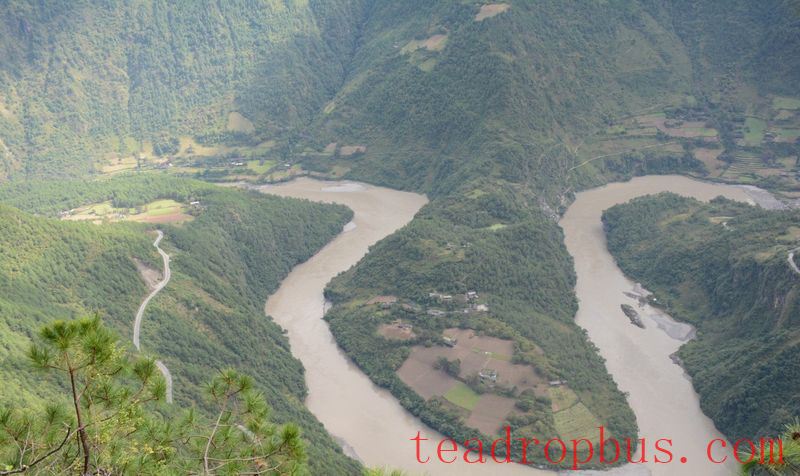
For those traveling on the Tea Horse Road, there is no ease or comfort from beginning to end. Unpredictable disasters might lurk on the road. Walking along the Tea Horse Road in Wuli Village and passing the ancient path cut into the rock, one can feel a chill. Especially when encountering villagers carrying loads, the narrow plank road becomes even more perilous. The thousand-year-old road, the thousand-year-old footsteps, the thousand years of wind and rain… brushing away the dust of history, a sense of ancient dignity and distant civilization comes to the fore. The life of a horseman is like a piece of shattered stone, a sweaty shirt, fading into the silent dust with the disappearance of the ancient road.
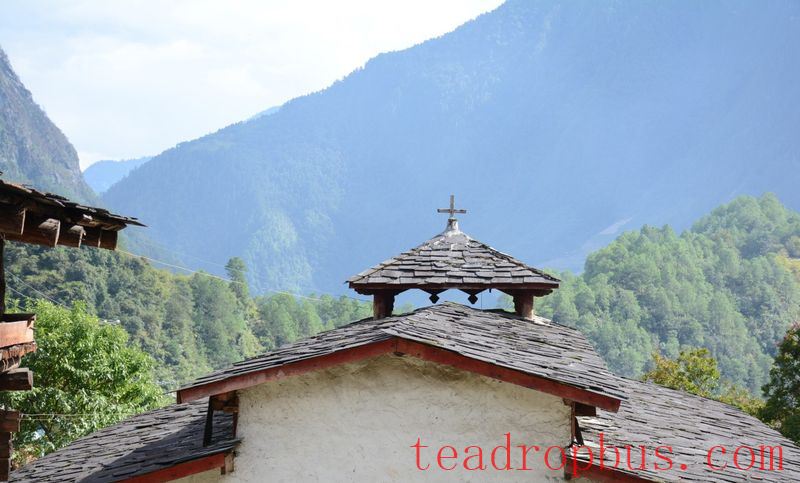
Leaving Bingzhongluo, gazing at the misty Mount Gongtang, one's heart sways in the myth of the peak Gawagapu. A gentle mountain breeze blows, and thoughts drift over the fields of Bingzhongluo. The weaving of the Nu sisters is like a rainbow rising from under the stone roofs, and the Tibetan mothers turn prayer wheels, sending blessings far and wide. The mist moving over the hills changes shape constantly, allowing your imagination to run wild. Wooden houses are scattered across the fields, with wisps of smoke rising, and the turbulent river. The impression of Bingzhongluo, a place where humans and gods coexist.
Originally published in “Pu'er” magazine
If there are any copyright issues, please contact us for removal.